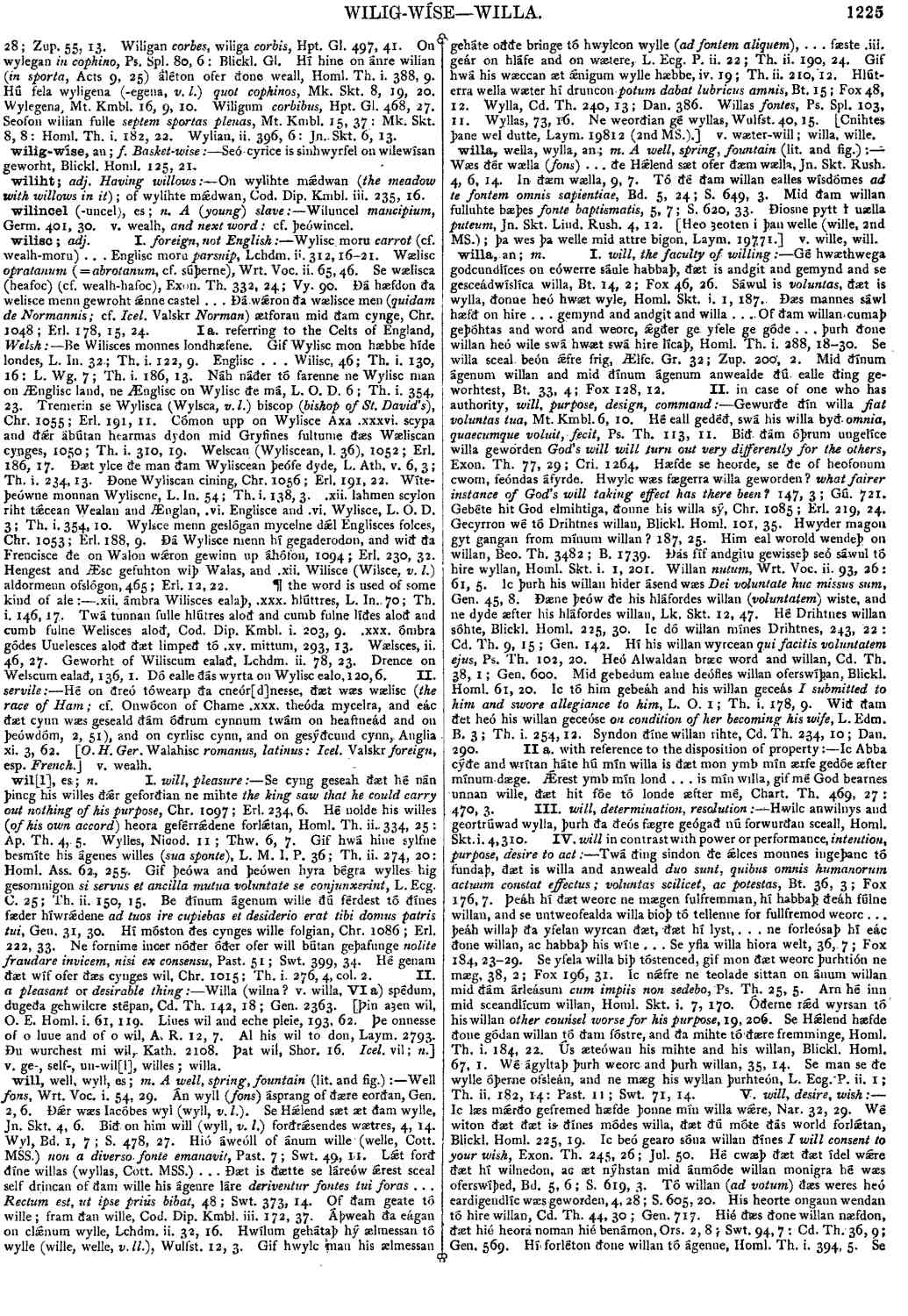wil
- noun [ neuter ]
-
Se cyng geseah ðæt hé nán þincg his willes ðǽr geforðian ne mihte
the king saw that he could carry out nothing of his purpose
,- Chr. 1097; Erl. 234, 6.
-
Hé nolde his willes (
of his own accord
) heora geférrǽdene forlǽtan,- Homl. Th. ii. 334, 25 : Ap. Th. 4, 5.
-
Wylles,
- Nicod. 11 ; Thw. 6, 7.
-
Gif hwá hine sylfne besmíte his ágenes willes (
sua sponte
),- L. M. P. 36; Th. ii. 274, 20: Homl. Ass. 62, 255.
-
Gif þeówa and þeówen hyra bégra wylles hig gesomnigon
si servus et ancilla mutua voluntate se conjunxerint
,- L. Ecg. C. 25; Th. ii. 150, 15.
-
Be ðínum ágenum wille ð ú férdest tó ðínes fæder híwrǽdene
ad tuos ire cupiebas et desiderio erat tibi domus patris tui
,- Gen. 31, 30.
-
Hí móston ðes cynges wille folgian,
- Chr. 1086 ; Erl. 222, 33.
-
Ne fornime incer nóðer óðer ofer will bútan geþafunge
nolite fraudare invicem, nisi ex consensu
,- Past. 51; Swt. 399, 34.
-
Hé genam ðæt wíf ofer ðæs cynges wil,
- Chr. 1015 ; Th. i. 276, 4, col. 2.
-
Willa (wilna? v. willa. VIa) spédum, dugeða gehwilcre stépan,
- Cd. Th. 142, 18 ; Gen. 2363.
- [þ in aȝen wil, O. E. Homl. i.
- 61, 119.
-
Liues wil and eche pleie,
- 193, 62.
-
Al his wil to don,
- Laym. 2793.
- Ðu wurchest mi wil, . Kath. 2108.
-
Þat wil,
- Shor. 16. Icel. vil; n. v. ge-, self-, un-wil[l
Bosworth, Joseph. “wil.” In An Anglo-Saxon Dictionary Online, edited by Thomas Northcote Toller, Christ Sean, and Ondřej Tichy. Prague: Faculty of Arts, Charles University, 2014. https://bosworthtoller.com/35768.
Checked: 0